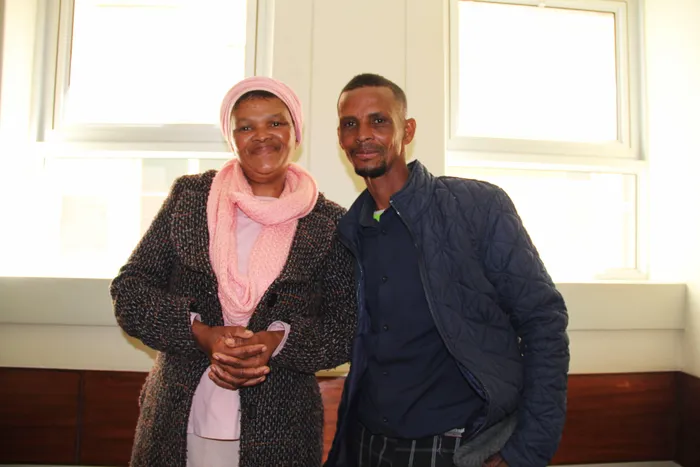Ex-pupil sues NC Education Department for millions over bathroom slip

The Links family has instituted a claim for damages against the Department of Education.
Image: Sandi Kwon Hoo / DFA
IN A MULTIMILLION-rand lawsuit against the Northern Cape Department of Education, the legal team representing 23-year-old Michael Links believes he is entitled to compensation, claiming that injuries he sustained from a fall on a slippery school floor have crippled his future job prospects.
The incident occurred in 2011 in the boys’ bathroom at Boegoeberg Brandboom Intermediary School near Upington, when Links was in Grade 3. He was nine years old at the time and suffered permanent brain injuries after slipping on the wet cement floor and hitting his head on the edge of a urinal.
Judge Almé Stanton ruled in 2024 that the Department of Education was liable to pay damages. She concluded, based on uncontested evidence from neurosurgeon Dr Zayne Domingo, that Links did not suffer a stroke, but that the fall had caused his condition to progressively deteriorate.
During proceedings in the Northern Cape High Court this week, the legal representative for the MEC for Education, Advocate Boitumelo Babuseng, pointed out that Links had worked for the non-profit organisation LoveLife for a year.
“His father indicated that Michael enjoyed working at LoveLife on a one-year internship. He gave health talks to about 30 people. He also did manual labour at a pecan nut farm for a month,” Babuseng said.
He further proposed that Links could potentially be offered an office-bound job at the department.
Babuseng added that it was considered normal in South Africa to gain employment through connections.
“The family lives in a rural town where Links’ father works on a farm and his sister is attending college,” he said.
Expert witnesses say Links will struggle to work
Clinical psychologist Elspeth Burke, who has a special interest in neuropsychology, said she was astounded that Links managed to obtain his Grade 12 certificate.
“I can’t believe it, as his intelligence quotient is less than below average. He will not be able to work with his left hand and will require a sedentary job where he only works utilising his right hand. He will have to work for a sympathetic employer in a protected environment and will require constant supervision. His cognitive and physical deficiencies will severely affect him in the workplace. He will only be able to work short-term jobs before becoming unemployed. Even if he gets employment through connections, that network will eventually run out due to a poor track record of performance,” Burke explained.
She added that Links had been made to pick up pecan nuts from the ground at the farm and was not able to perform heavy-duty work.
“His work at LoveLife was not exceptionally demanding. He was taken on at LoveLife through the initiative of his sister and was employed on the pecan nut farm upon initiative of his father. His mother would wake him up and assist him to get ready for work. He lacks the drive and motivation to maintain a job and will have difficulty securing a job on his own accord.”
Industrial psychologist Richard Hunter added that the incident had drastically altered Links’ abilities.
“His speech is slow, he has a slight limp, and he does not socialise easily. He is short-tempered, displays poor memory, and becomes easily stressed and impatient. He was frequently absent from work for days, which he spent alone in a dark room. Some days, he could not get any work done,” said Hunter.
He indicated that Links could potentially earn a salary within the B4–C1 Patterson grading scale.
“He was paid R1,000 per month at LoveLife, where he worked three days per week from 8am until 4pm. This is below the minimum wage. He left his job two months before his one-year contract expired, as he said ‘he was tired and had enough’.”
Hunter added that manual labour was not suitable for Links as he could not use his left hand.
“Multiple factors count against him in the open job market, where employers expect performance, production targets and strict deadlines to be met. He was employed at a non-profit organisation that is not a highly pressurised work environment. Even sympathetic employers may leave or resign, which could leave Links facing an uncertain future,” he said.
Occupational therapist Celeste Taylor testified that the neurological injury had affected Links’ muscles and that he displayed a clawed hand.
“He has difficulty grasping objects and has decreased sensation in his left hand. This leaves him at risk of severe burns if he touches something that is very hot. His co-ordination and mobility were also affected.”
The case continues before Judge Cecile Wiliams. Links is represented by senior Advocate Murray van Heerden.